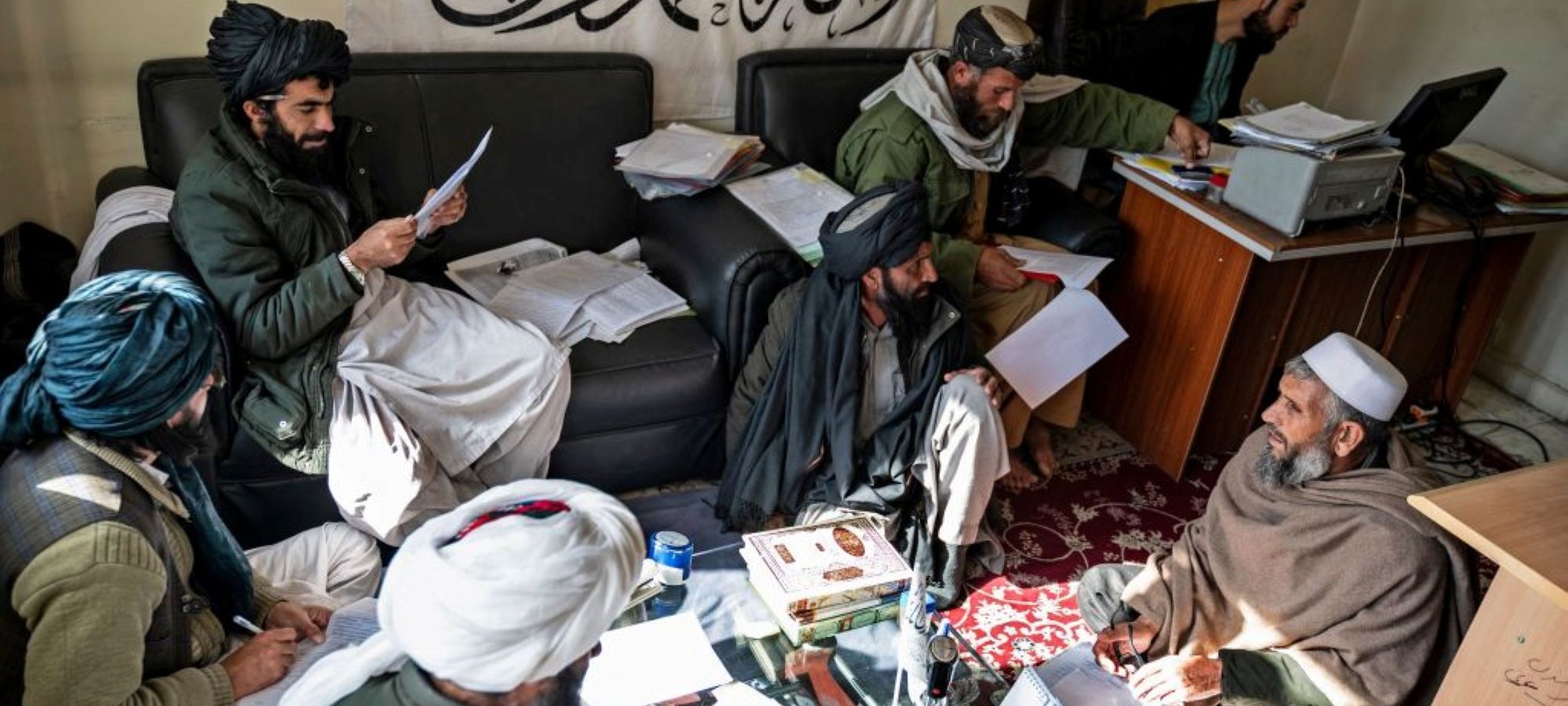The Taliban de-facto authorities must immediately put an end to the arbitrary and unfair delivery of justice by reinstating a formal constitutional and legal framework and the rule of law in accordance with Afghanistan’s international human rights obligations, Amnesty International said today.
Since the Taliban took power in August 2021, Afghanistan’s legal framework has been entirely dismantled and replaced with a religiously grounded system shaped by the Taliban’s strict interpretation of Islamic Sharia law. The system is riddled with inconsistency, pervasive impunity and unaccountability; arbitrary, unfair and closed trials; and personal biases in the meting out of punishments such as public flogging and other forms of torture and other ill-treatment.
“After four years of Taliban rule, what remains is a deeply opaque, coercive legal order that prioritizes obedience over rights, and silence over truth,” said Samira Hamidi, Amnesty International’s regional campaigner for South Asia.
“The Taliban’s justice system is causing blatant miscarriages of justice. The justice system has not only stepped away from international human rights standards but has reversed nearly two decades of progress.”
“There is no law to refer to”
Prior to August 2021, Afghan laws were grounded in a written constitution and passed by elected legislative bodies after reforms from 2001 led to several improvements in the country. Courts functioned at multiple levels (Primary, Appeal and Supreme Courts) and were supported by independent prosecutors and legal defence structures. Court decisions were generally documented, open to appeal and subject to public oversight.
Under the Taliban, court proceedings are generally conducted by a single judge (Qazi) accompanied by a religious legal expert (Mufti) who advises on the issuance of religious verdicts (Fatwas) based on their personal interpretation of religious texts.
Speaking with Amnesty International, a former judge in Afghanistan explained the wide discrepancies in judgements due to the use of different guidance of Islamic thought (fiqh) and jurisprudence: “In some districts, rulings are based on Bada’i al-Sana’i while in others, they refer to Fatawa-i Qazi Khan. The same crime might result in two completely different verdicts.” For a criminal charge such as theft, the penalties can range from public flogging to short-term detention based on individual interpretations.
This lack of legal uniformity has made the system uncertain, unpredictable and arbitrary. A former prosecutor said that in some rural Afghan courts, judges were seen browsing religious texts during trials to find suitable references, leading to long delays and inconsistent outcomes. The absence of codified national laws has stripped people, including citizens and legal professionals, of any clarity or certainty about their rights and responsibilities.
Erasure of women in the judicial system in Afghanistan
Before the Taliban’s take-over, women were actively serving as judges, prosecutors, and lawyers.
They made up between 8% and 10% of the judiciary, and nearly 1,500 women were registered as lawyers and legal advocates with the Afghanistan Independent Bar Association (AIBA), comprising about a quarter of its total membership. Today, most of them have been forced into hiding or exile after being dismissed from their positions following the Taliban’s take-over.
Institutions that once served to protect women’s rights, such as Family Courts, Juvenile Justice Units, and Violence Against Women Units, have been dismantled, leaving women with almost no access to justice and effective remedies. As one former judge said: “In Taliban courts, the voice of a woman is not heard, not because she has nothing to say, but because there is no one left to hear her.”
“We all live in fear”
A former female judge, who had served on a family court in Kabul and is now in exile, said: “There is no judicial independence, no fair trial procedures, and no access to defence lawyers. We had built a legal system with rules, and overnight [the Taliban] turned it into something frightening and unpredictable.”
Under Taliban rule, court proceedings are often held in secret. There is no system of public oversight, and legal decisions are neither documented nor explained. People are arrested without warrants, detained without trial, and in some cases, simply forcibly disappeared. A former prosecutor said: “We used to have to justify every arrest with paperwork and investigation before August 2021 but now, someone can be picked up for their clothes or for speaking out, and no one will ask why.”
Sentences handed down without fair trial or proper legal review often result in public punishments—including flogging and executions—carried out in city squares and sports stadiums. These acts violate the right to dignity and protection from torture and extra-judicial executions. Several witnesses recalled seeing young men flogged in public for listening to music or women detained for not being fully covered. These spectacles are not just punishments; they are tools of fear and control. The former prosecutor added: “we all live in fear of becoming the next example.”
“Taliban’s justice system undermines basic principles of fairness, transparency, accountability, and dignity. It is not built on the protection of human rights but on fear and control. For many Afghans, especially women, justice is no longer something they can seek. It is something they must survive without,” said Samira Hamidi.
International community must act to restore human rights in Afghanistan
The Taliban must immediately reverse their draconian edicts, end corporal punishments, and uphold the human rights of everyone in the country. The Taliban must also actively and effectively respect, protect and uphold judicial independence and the rule of law including by reforming the justice system and ensuring that judges, lawyers, prosecutors and other legal experts are able to provide services to the Afghan population in accordance with the country’s international human rights obligations.
Amnesty International is calling on the international community to take immediate action, through diplomatic pressure and principled engagement with the Taliban de-facto authorities, to demand the reinstatement of a formal legal system, protection of human rights and the rule of law in Afghanistan.





















